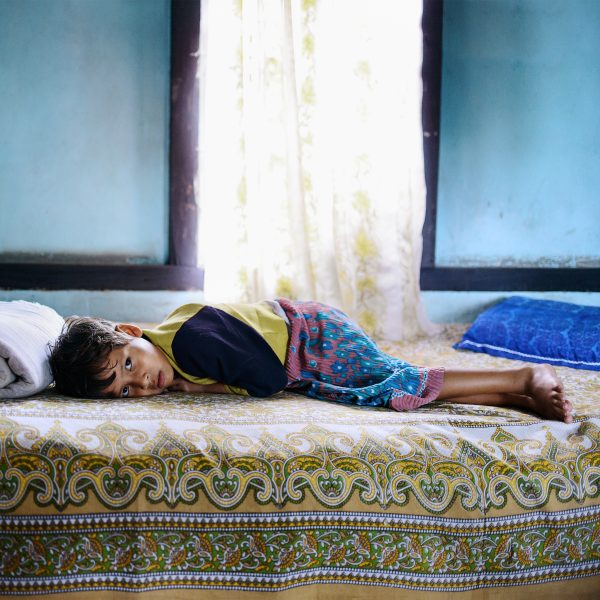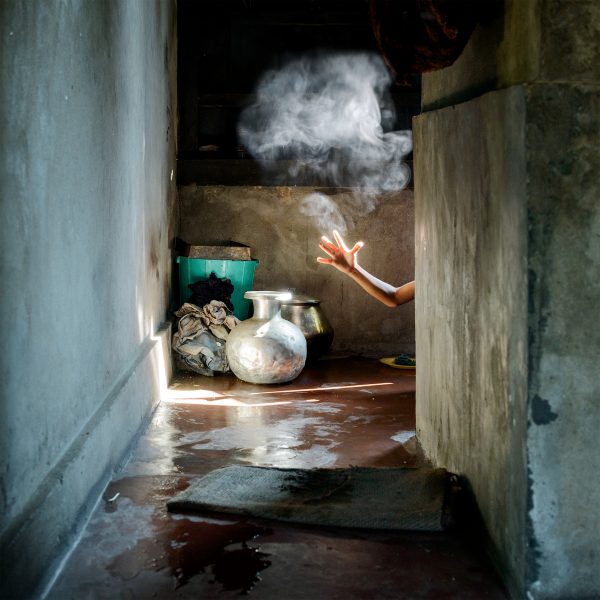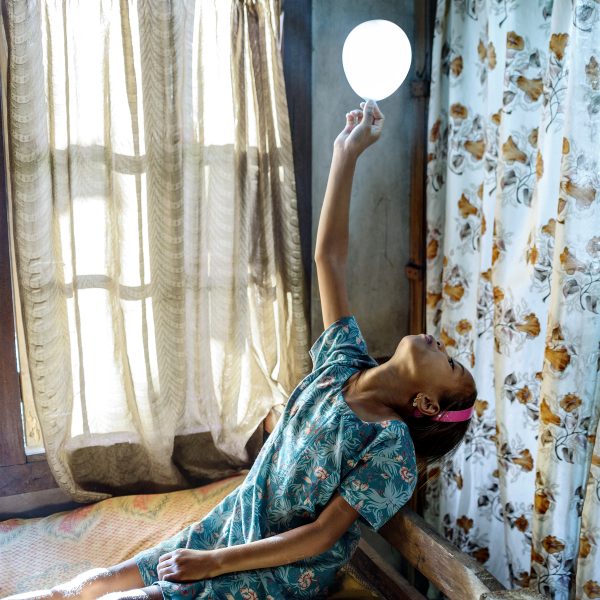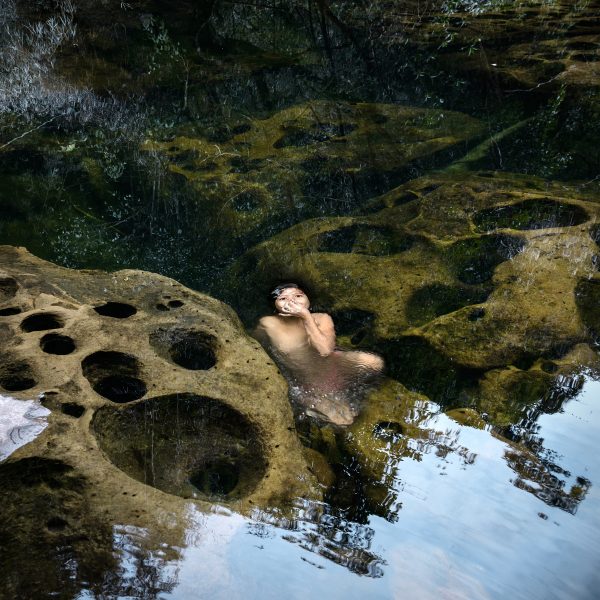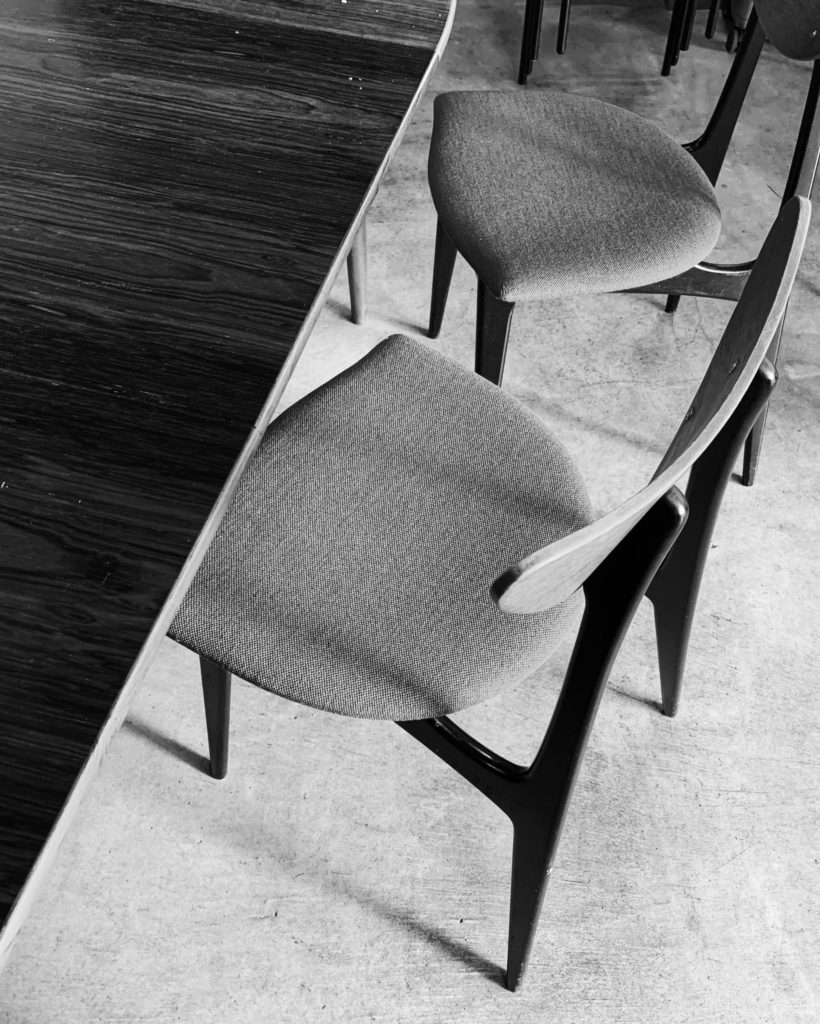Browsing through the projects of Berlin-based photographer Karolin Klüppel, an underlying message of gender dialogue quietly sneaks its way into your sub-conscience. Her work challenges our perception of gender and its associated norms in an artistically playful manner, by drawing inspiration from great masters such as Caravaggio or delving deeper into foreign cultures for an intimate portrayal of human dynamics.
Karolin Klüppel in her apartment.
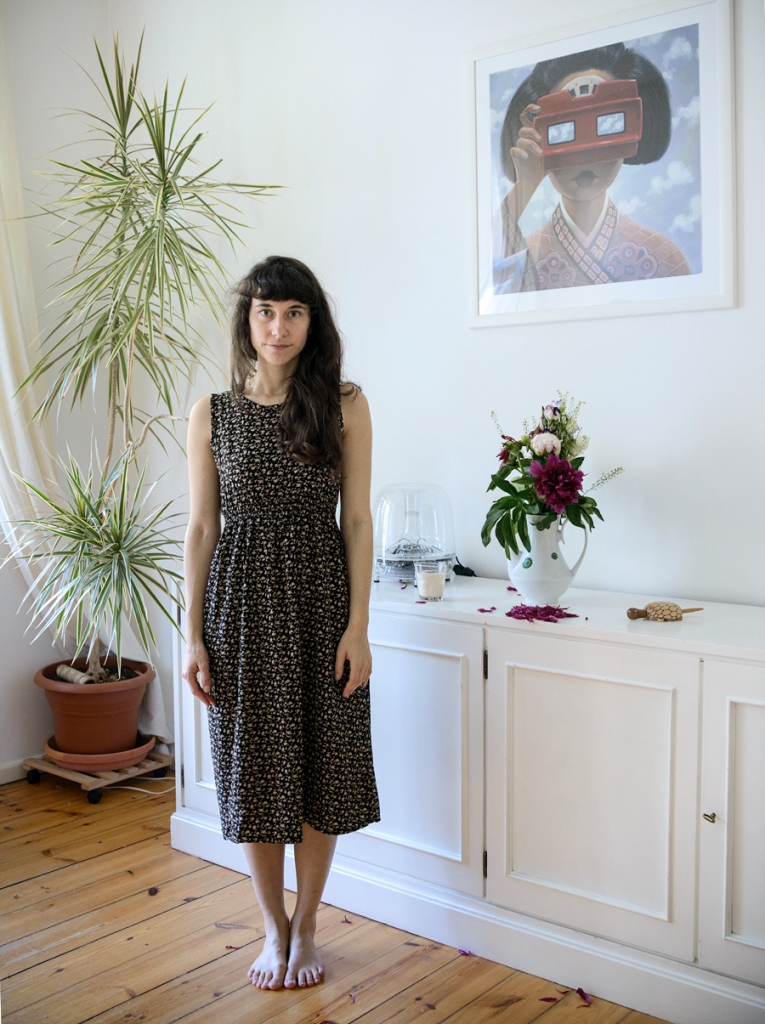
Karolin’s photo series, Mädchenland, has been circulating in art galleries in Denmark, Germany, and France since 2014, and won the Canon Profifoto advancement award in the same year.
In this series, Karolin explores the matrilineal Khasi tribe of the small village Mawlynnong in India. The indigenous people of the Khasi tribe make up the majority of Meghalaya’s population, with 1.1 million members. Here, traditionally, it is the girls who are of particular importance and who play an exposed role in the family. The line of succession passes through the youngest daughter. If she marries, her husband is taken into her family‘s house, and the children take their mother‘s name. A family with just sons is considered unlucky, because only daughters can assure the continuity of a clan. Compared to general Indian conditions, the succession of the maternal line guarantees girls and women in Meghalaya a unique economic and social independence. To disrespect a woman in the Khasi culture means to harm the society.
Karolin and the Khasi Tribe
For a total of nine months, Karolin was welcomed into the home of a Khasi family and she documented the everyday lives of young girls of various ages. She first travelled to Rajastan and Shillong, but soon decided that her project would be much better suited for a small neighbourly village, where people shared a tighter connection.
-
Yasmin with mug. No house in Mawlynnong has running water, but there are many wells in the village.
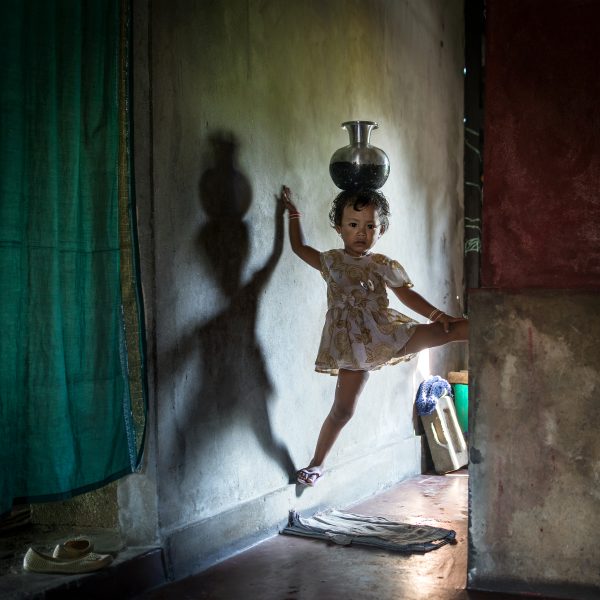
-
Yasmin taking bath at the river. the river and the water gets very milky because of the soap.
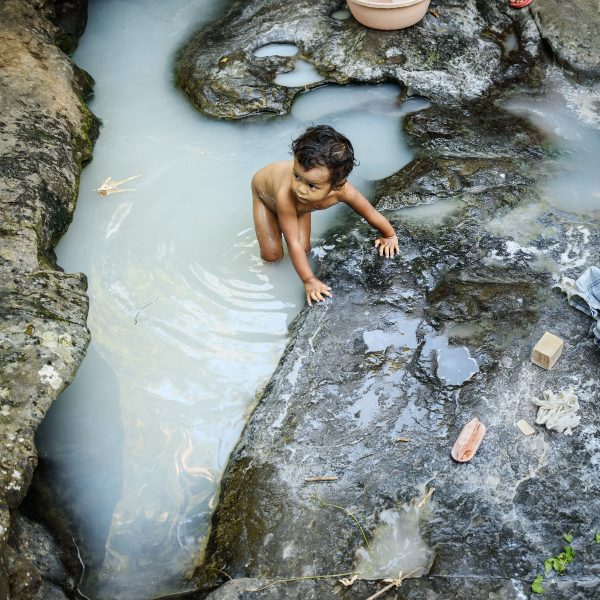
-
Yasmin playing at the river. In summer and when there is no rain, most of the children go to the river in the afternoons to play, swim
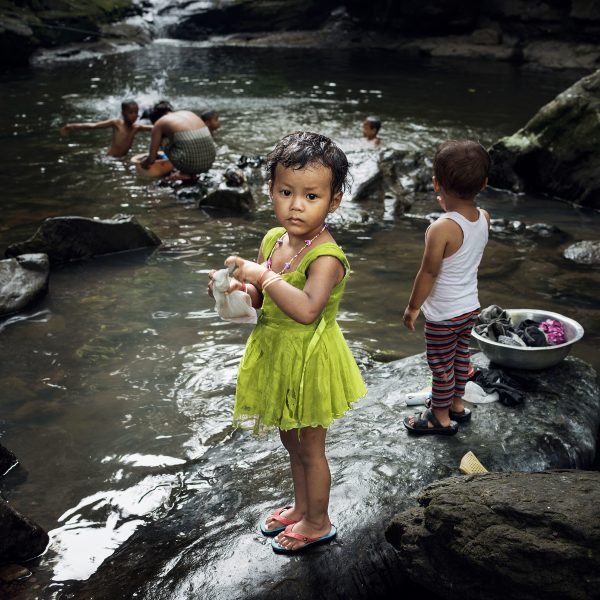
-
Yasmin in her bedroom.
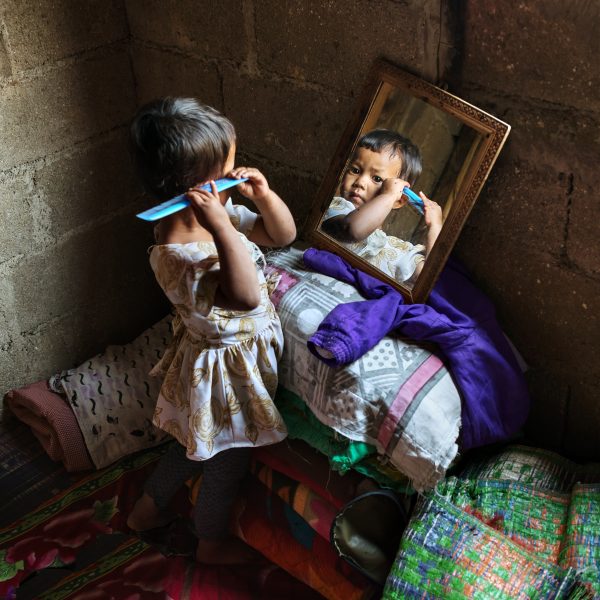
-
Wanda on the stairs to the treehouse. There are two treehouses in Mawlynnong, where you can see Bangladesh from the top. The border is only few kilometers far.

– When I first arrived in Mawlynnong, I started looking around for a guest house. I stayed there for a few weeks until I met a Khasi family who invited me into their home. For a total of nine months, I hung out and played with their two-year old twin boys, their four-year old daughter, and their eldest daughter, Grace (7 years old). The family was super nice and took really good care of me. Three weeks before I was going to fly home to Berlin, I got really sick. I was trying to cure myself on my own, but that didn’t work.
The family went out of their way to help me and even organised a car to get me to the private hospital in Shillong. I was diagnosed with a bacterial infection and high fever, and just wanted to sleep all day. The family was so helpful and checked on me every hour of the night. I spoke to them several weeks after I had arrived back in Berlin, and they told me that two people in the village had died because of the same bacterial infection. That was a bit scary.
You might think that a small, indigenous village with a population of five hundred people would be a bit wary of a white westerner taking up residence in their local environment; especially one constantly armed with a camera. But Karolin’s experience was of the contrary, and she believes there’s a thing or two that western societies might learn from the Khasi tribe.
– My experience with the people of the village was very open and friendly. They’re poor people but what they have, they will give. It’s very typical of Indian societies to depend on people to help one another. If someone is ill, the whole village helps out. When the parents get old and need help, the children return home and take care of them. Parents give their children a lot more responsibility here, with household chores and the like. But they are happy, and, through having these responsibilities, they are a lot more confident within themselves.
Looking at the pictures of Khasi girls depicted in their natural habitats, playing with homemade toys or enjoying a splash in the river, you’ll notice that, although you can get a clear sense of their innocence and frolicsome ways, their stern facial expression makes it difficult to perceive them as such. It makes you wonder about how one might approach children with such different cultural values and personalities.
-
At the river.
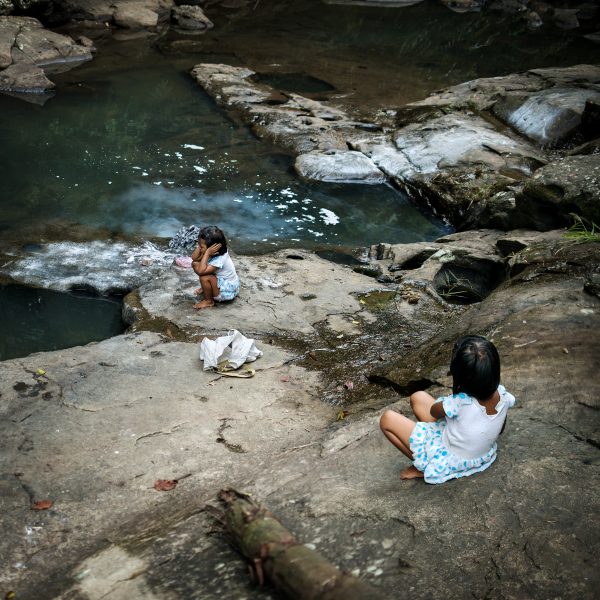
-
Ibapyntgen with bugs.
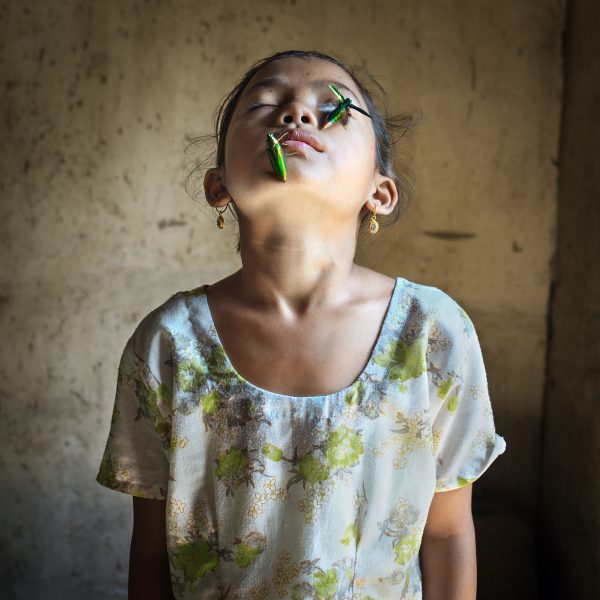
-
Grace with dryfish. During winter, it is hard to find fish in the lakes arround Mawlynnong. Thats why a lot of Khasi dry fish on small bamboo sticks before the winter comes.
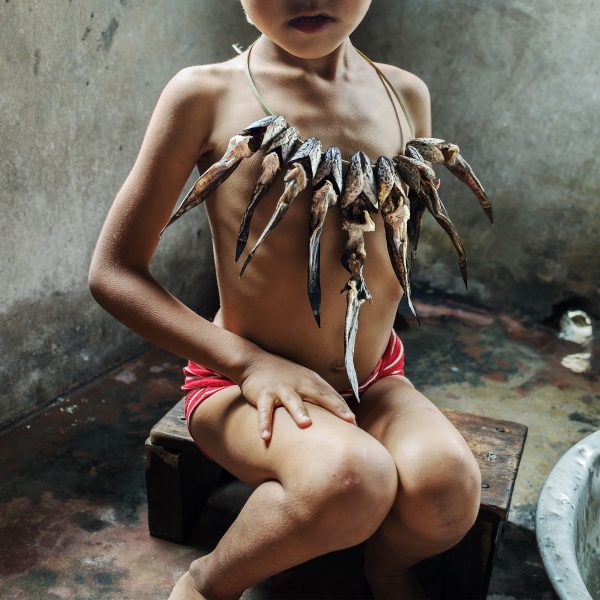
-
Deng in her kitchen.

-
As Khasi are no muslims, they eat beef. In the nearest town Pynursla, butchers sell nearly every part of a cow. Out of the legs, some Khasi cook soup.
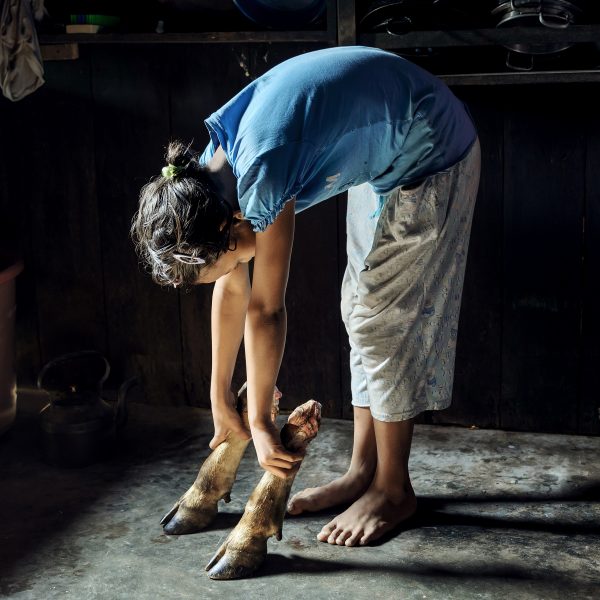
– The children weren’t scared at all. Whenever they saw me with my camera, they always wanted their pictures taken. They start learning English at school between the ages of three and four, so they knew enough words for us to communicate with. Within a few weeks I also learned a few words in their language, so it worked really well. The children don’t really have toys, they’ll play with anything and they make their own toys as well. The boy next door made his own drum, it was really cool. He would start playing at six o’clock in the morning {laughs}.
Artistic Cultural Clashes
Another aspect of the Khasi culture that struck Karolin as interesting is that the women are really independent and don’t seem to rely on their men as heavily as in other societies. In general, the women are more present, whereas the men keep to the background. The men find their own time in the evenings when they sneak out for a secret drinking session, or to meet with a lover. But as open-minded as they are compared to other Indian societies, there are still certain taboos and Karolin’s photo series, “I never promised you a rose garden”, would have definitely been considered one of them.
– For my final exam project, I started taking a lot of pictures of nude men with no muscles and no facial and body hair. I wanted to capture their softness. For “I never promised you a rose garden,” I concentrated on natural portraits that draw resemblance to famous paintings such as John Everett Millais’ Orphelia, only, my models were male. In another series titled “Peekaboo”, I explored the conflict between childhood and manhood. It doesn’t have a deep sense; it’s all about what you feel when you see it. I was a bit worried about the people of Mawlynnong finding out about these previous projects as this type of art is forbidden and would be considered a crime, but luckily they didn’t.
I never promised you a rose garden really turns the gender roles around, by placing the male model in the limelight and challenging its nude forms against a natural backdrop in a manner typically reserved for female models. Peekaboo, on the other hand, is a rather provocative and awkward series, embracing the purgatory between childhood purity and adult desires. It’s daring, playful, and strangely endearing.
Since last November, Karolin has been back in the bustling city of Berlin. As much as she missed her family and friends, a good internet connection, pizza and pasta, coming back to the chaotic city was quite stressful after having spent so much time in this remote location. But we rest assured she won’t be staying put for long as she already has a new project on the horizon – a stint with the Mosuo people of China, another place where women rule.
